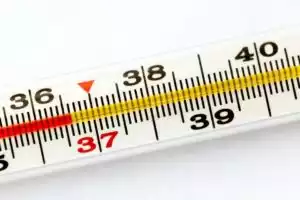
Understanding Temperature Changes During Medical Abortion
Introduction:
Medical Abortion, also known as the abortion pill or Medication Abortion, is a safe and effective method that involves taking prescribed medications to terminate a pregnancy. During this process, it is common for individuals to experience changes in body temperature. In this article, we will explore the temperature fluctuations that can occur during a Medical Abortion and discuss when it is necessary to seek medical attention.
Temperature Changes and Medical Abortion:
- Moderate increase in body temperature:
It is not uncommon for the body temperature to rise slightly during a Medical Abortion. This can be attributed to hormonal changes caused by the medications involved, such as Mifepristone and Misoprostol. - Low-grade fever:
Some individuals may experience a mild fever during a Medical Abortion. A low-grade fever is defined as a body temperature above the normal range of 97 °F (ca. 36 °C) to 99 °F (ca. 37 °C) but below 100.4 °F (38 °C). This low-grade fever is generally a temporary side effect of the medications, and it usually resolves independently without medical intervention. - Chills:
Chills, or feeling cold and shivery, can accompany fever during Medical Abortion. Chills are the body’s attempt to raise its temperature to match the fever.
What a Fever During and After an Abortion Can Tell
Experiencing a fever during or after an abortion can provide valuable insight into the body’s response to the procedure and potential complications. Here’s what a fever during and after an abortion can tell you:
-
Infection:
Fever is often a sign that the body is fighting an infection. During an abortion procedure, whether surgical or medical, there is a risk of introducing bacteria into the reproductive tract, leading to infection. A fever may indicate an infection, such as pelvic inflammatory disease (PID) or endometritis, has developed. -
Incomplete Abortion:
In some cases, a fever may indicate that the abortion procedure was not entirely successful, leading to an incomplete abortion. This occurs when some pregnancy tissue remains in the uterus after the procedure, which can cause inflammation and infection, resulting in a fever. -
Complications:
A fever may also be a sign of other complications related to the abortion procedure, such as uterine perforation, excessive bleeding, or an adverse reaction to anesthesia or medications used during the procedure. -
Reaction to Medications:
Fever can sometimes be a side effect of medications used during the abortion procedure, such as anesthesia or antibiotics prescribed to prevent infection. If a fever develops shortly after taking medication, it may indicate an allergic or adverse drug reaction. -
Normal Response:
In some cases, a low-grade fever may be a normal response to the abortion procedure as the body adjusts to the changes in hormone levels and tissue expulsion. This type of fever is usually mild and transient and should resolve on its own within a day or two.
It’s essential to pay attention to other accompanying symptoms when assessing the significance of a fever during or after an abortion. These symptoms may include severe abdominal pain, heavy bleeding, foul-smelling discharge, chills, nausea, vomiting, and dizziness.
If a fever persists or is accompanied by other concerning symptoms, it’s essential to seek medical attention promptly. A healthcare provider can evaluate the underlying cause of the fever and determine the appropriate course of action, including further evaluation, antibiotic treatment, or additional interventions to manage complications.
Monitoring Temperature Effectively:
-
Use of Thermometers:
Digital thermometers are recommended for accurately monitoring body temperature. Oral, rectal, or temporal artery thermometers are commonly used. Follow the manufacturer’s instructions for proper use. -
Frequency of Monitoring:
The temperature should be monitored regularly, mainly if symptoms such as fever or chills occur. Keeping a temperature log can help track changes over time.
When to Seek Medical Attention:
-
High Fever:
A high fever [temperature above 100.4 °F (ca. 38 °C)] during a Medical Abortion may indicate an infection and require prompt medical attention. -
Persistent Fever:
If fever persists for more than 24 hours or is accompanied by other concerning symptoms such as severe abdominal pain, foul-smelling discharge, or heavy bleeding, seek medical evaluation. -
Chills:
Severe or persistent chills, especially when accompanied by fever, may indicate an underlying infection and should prompt medical assessment.
Tips for Managing Temperature-Related Symptoms:
-
Stay Hydrated:
Drink plenty of fluids, such as water, herbal teas, or electrolyte drinks, to stay hydrated and help regulate body temperature. -
Rest:
Get plenty of rest to support the body’s immune response and aid recovery. -
Fever-Reducing Medications:
Over-the-counter fever reducers such as acetaminophen (Tylenol) or ibuprofen (Advil, Motrin) can help reduce fever and alleviate discomfort. Follow the recommended dosage instructions. -
Cool Compresses: Applying cool compresses to the forehead, neck, or armpits can help lower body temperature and relieve fever and chills.
Conclusion:
During a Medical Abortion, it is common for individuals to experience changes in body temperature, with some experiencing a slight increase or low-grade fever. However, it is crucial to differentiate between normal temperature fluctuations and potential signs of infection. Monitoring your temperature and being aware of any other accompanying symptoms is essential.
By staying informed and proactive, individuals can navigate temperature changes during Medical Abortion with confidence and support.
Author
 Dr. Kopp Kallner. M.D. in Obstetrics & Gynecology, Columbia University Medical School.
Dr. Kopp Kallner. M.D. in Obstetrics & Gynecology, Columbia University Medical School.
Buy Abortion Pills

 Français
Français Deutsch
Deutsch Español
Español Русский
Русский